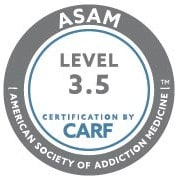BLOG
Who Or What Is Higher Power, Or God?
![]()
What does God, or a Higher Power, have to do with recovery from addiction? For me, nothing at first. Then, everything.
The words “Higher Power” or “God” evoke more emotions than just about any other words in our language. From fear, anger, contempt, and disbelief all the way to loving dedication and devotion and deep trust, and everywhere in-between, people tend to talk about a lot of different things when they talk about God.
I came into recovery with no other options. I was at a bottom and had gotten myself into a myriad of situations that I couldn’t manipulate or lie my way out of. I was desperate for something different, I just wasn’t sure what; and, whatever it was, I was still ultimately going to be in charge of my life. I knew that I had a drinking problem, and that I liked to get high in just about any way possible, and that those things needed to be brought under control. I knew God could turn my life around, but I was also certain that I used up all my chances.
I was fortunate to grow up with a healthy concept of God. Many who come into recovery have a negative concept of God, or don’t believe in God or Higher Power at all. I’m blessed to have been handed down a positive view of a loving, merciful, and gracious God. But my God did have limits. In the rooms of Alcoholics Anonymous, I was at first skeptical of the whole “Higher Power” thing, but I would come to appreciate that language, and eventually gain an understanding of God as the Higher Power that I had never even dreamed of, let alone known personally.
So… what are we talking about when we talk about God? What exactly is this Higher Power thing?
Before we go there, let’s start here…the word God appears 315 times in the books Alcoholics Anonymous and 12 Steps and 12 Traditions. That’s a lot. In fact, God is all through all of the literature of Alcoholics Anonymous. So let’s do away right from the start with the idea that AA is a program that is not based on God. The 12 steps, which are the heart of the program, mention God specifically four times, and God is referred to indirectly two more times. God is THE “Higher Power” referred to again and again and again. But virtually everyone has a different understanding or concept of that Higher Power. The problem comes when people insert their preconceived ideas about God—who God is, what God is, how God acts and works, or whether or not God even exists. The problem comes when people try to work with their own definition of God, or define their own higher power (note the lowercase letters) whatever that definition may be.
The beauty of the AA program is that it does not attempt to define God for anyone. No one is told what they “must” or “have to” believe. AA takes everyone from their own individual and respective starting point and suggests the use of the 12 Steps to guide that individual not merely into a deeper understanding of God, but into a meaningful relationship with God that is not merely sufficient to bring about recovery from any form of addiction, but that enables “the sufferer to become happily and usefully whole” (12 Steps and 12 Traditions, p. 15). That is what worked for me. My skepticism about the phrase Higher Power soon dissipated once I realized that other people didn’t have the same positive understanding of God that I had. To them, Higher Power was a tolerable term, where the word God brought up negative ideas of fire, brimstone, and judgment.
“Lack of power, that was our dilemma. We had to find a power by which we could live, and it had a Power greater than ourselves. Obviously. But where and how were we to find this Power? Well, that’s exactly what this book is about. Its main object is to enable you to find a Power greater than yourself which will solve your problem. That means we have written a book which we believe is spiritual as well as moral. And it means, of course, that we are going to talk about God” (Alcoholics Anonymous, p. 45)
This is the point where some religious people get upset because they think everyone else should submit to their idea of God, and AA doesn’t force anyone to do that. I can relate to that because at one time I was pretty certain about my view of God too. This is also where the atheist and the agnostic get skeptical of the program of recovery, and perhaps even give up any hope, because of their belief or doubt that any such Power greater than themselves exists, especially one called “God.” Here’s the thing—the God that they claim no belief in, I don’t believe in either! All one needs do to begin is set aside prejudices and preconceived ideas and express just a willingness to consider that there is something out there greater than oneself, a Higher Power. But that can be difficult to do.
We all believe whatever we believe because we’ve been taught to believe it. Whatever we believe (or don’t believe) about God is due in large part to how we were taught, raised, or trained to believe. Whether our view of God is good, bad, positive, negative, healthy or unhealthy, we have the view that we have because we’ve been conditioned to lean the way that we lean. It was the air we breathed and the water we drank. I had to own that and admit that I see through the lenses that I wear.
Or…others have been let down, disappointed, or gotten mad at the God they thought they believed in. If we viewed God as some sort of divine Santa Claus, and we didn’t get something we wanted or asked for, then we subsequently gave up on the whole God idea completely (pretty selfish and self-centered if you think about it, but that is how most of us alcoholics and addicts think!).
Maybe we’ve observed the hypocrisy of some religious people, or we’ve become disheartened by what we’ve perceived as God’s apparent inactivity in the world, and just gave up belief altogether. Most of us have certainly been there and done that! If one can just be willing to temporarily set aside all of those preconceived ideas, one can begin to see results.
So, back to the original question: what are we talking about when we talk about God? What is this Higher Power, or “power greater than ourselves that could restore us to sanity”?
When I came into AA, as a former minister, I thought everybody had to believe as I did, because I thought I was right. I had a fairly traditional, evangelical view of God. My traditional religious view was of a God that sits up in the skies, who grants favors, and brings punishments. I had actually never given much thought to why I thought about God as I did, but it was really just a grown up believing in the God I was taught in Sunday School or Vacation Bible School. That God was up in the sky somewhere, or out in space, occasionally intervening in life on earth when it served his purpose or will. I no longer believe in that kind of God. Read this quote from Reza Asla…
“When I was a child, I thought God was a large, powerful old man who lived in the sky—a bigger, stronger version of my father, but with magical powers. I imagined him handsome and grizzled, his long gray hair draped over his broad shoulders. He sat on a throne enwrapped by clouds. When he spoke, his voice boomed through the heavens, especially when he was angry. And he was often angry. But he was warm and loving, merciful and kind. He laughed when he was happy and cried when he was sad. I’m not sure where this image of God came from” (Reza Asla, God: A Human History, p. xi).
This was essentially how I thought of God. In fact, our human tendency is to fashion God in our image. What do you think of? Gandalf? Dumbledore? Santa Claus? Some old guy on a throne with a long white beard? A divine elf on the shelf? How do we picture God? Most see God as “a human being with superhuman abilities …a humanized God” (Asla). Likewise, Marcus Borg refers to “supernatural theism” and “parental theism” as the primary, traditional ways of thinking of God. The first believes the Divine to be like a superhero. The second believes God to be like a divine parent. Neither of these pictures is healthy, but I can relate to elements of both. Perhaps you can too. My version of God depended on which one I need at the time.
J.B. Phillips, in his book, Your God is Too Small, describes the different types of destructive, unreal gods: resident policeman, parental hangover, grand old man, meek-and-mild, absolute perfection, heavenly bosom, God-in-a-box, managing director, second-hand God, perennial grievance, pale Galilean, projected image. Phillips writes, “The trouble with many of us today is that we have not found a God big enough for our modern needs. In varying degrees, we suffer from a limited idea of God.”
I realized I had a limited idea of God. I had God in a box…a box of my own making. Part of my deconstruction came with a movie called The Shack. That book and movie resonated with millions, and it resonated with me. Like it or not, the movie portrayed God in an outside the box kind of way, in many ways! But it definitely touched something in me. Was I open to looking at God in a different way?
Jesus used the metaphor of a loving Father to describe God. There are many other ways God is portrayed in Scripture. Tower, rock, fire, cloud, storm, and loving mother, just to mention a few. In The Shack, God was portrayed as an African-American female. That image was scandalous, because the default opinion of many evangelical Christians is that God is a male, presumably white. God is neither male nor female. These are all metaphors. Metaphors are words used to express ideas and/or thoughts. Richard Rohr says, “metaphor is the only way one can speak of God.” Words, even though they are naturally limited to our human language, are all that we have to work with.
“God is Spirit” (John 4:24), and “God is love” (1 John 4:8). Those two images should do just fine. For me, this was a good place to start (over).
I have come to realize that my concept of God is my concept of God, and it doesn’t have to be yours. Your understanding of God won’t be the same as mine, and it doesn’t have to be. There are many ways to refer to our “Higher Power” …Great Spirit, Divine Love, Benevolent Creator, Spirit of the Universe, Divine Feminine, Holy Father-Mother, Creative Force, or Supreme Being. In the tradition of the Hebrew Scriptures (Old Testament), God is referred to as I AM and LORD, or Yahweh. Also, the Great Mystery, the Ground, the Source, the Force (sorry couldn’t resist that one!), Universal Presence, Divine Energy, The Great ONE, and, here it comes…the Unsuspected Inner Resource.
God is “that of which nothing greater can be conceived.” That’s my favorite, simple, yet complex definition. Here’s another one, but it’s a little longer. In the book What We Talk About When We Talk About God, Rob Bell describes God as “the energy, the glue, the force, the life, the power, the source, of all we know to be; the depth, the fullness, the vitality of life, from the highest of the highs to the lowest of the lows, and everything in between.”
That sounds pretty all-sufficient to me! This is the God I believe in today! And, this is the Power that restored me to sanity.
Ephesians 4:6 reads, “one God and Father of all, who is above all and through all and in all.”
Acts 17:27-28 expresses a similar idea: “so that they would search for God and perhaps grope for him and find him—though indeed he is not far from each one of us. For ‘In him we live and move and have our being’;”
Whatever word or concept you use to define God, in the simplest terms, we are talking about the “Power greater than ourselves (that) could restore us to sanity” (Step Two). That’s a good place to start for any of us.
Join us on the journey, won’t you?




